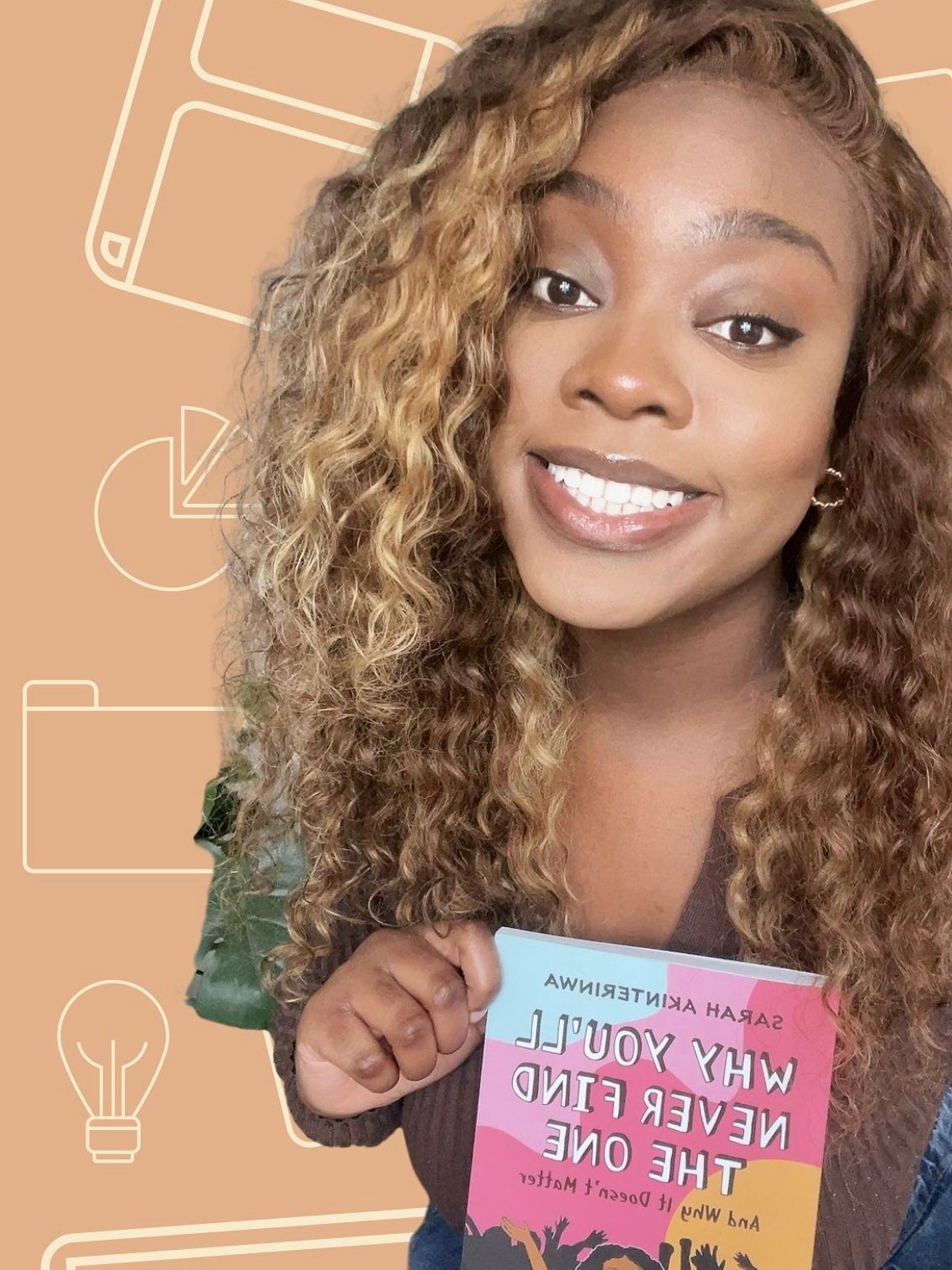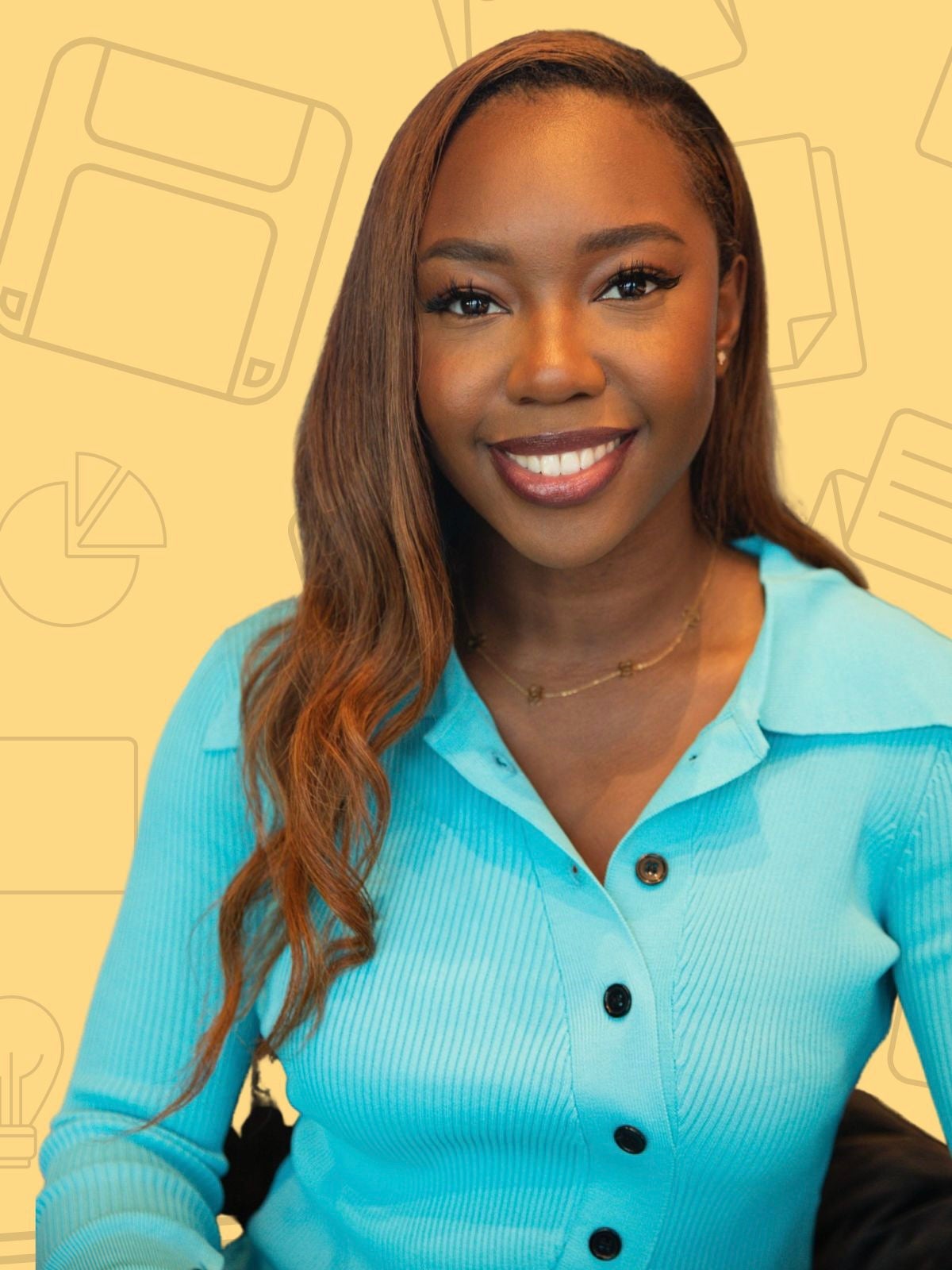
Freelancing is at an all-time high. According to a recent study by Upwork, independent contractors represent 39% of the US workforce. As growing numbers of Americans embrace project work over traditional nine-to-fives, weighing the pros and cons is essential.
ESSENCE spoke with three freelancers making a living in the gig economy: an English teacher turned professional cartoonist, a beauty entrepreneur of a multi-million-dollar seeded brand, and an actress, model, and freelance iOS programmer. They shared an inside glimpse of the benefits and barriers of freelancing—and the online gig platforms that help them navigate their trades.
The Professional Cartoonist

Twenty-eight is a tricky age. The shift from young adulthood to full adulthood is—for many, a tough one to navigate. Oprah once described the pivotal life period as the year “you solidly step into womanhood.” But, for Sarah Akinterinwa, that step feels more wobbly than solid.
In her comic strips, the 28-year-old cartoonist depicts the angst of navigating relationships and dating, figuring out career paths, and managing financial pressures—all while rooting out emotional baggage in the accelerated period of self-discovery. Her relatable tropes of twenty-something angst started gaining traction on Instagram—and when an editor from The New Yorker DM’d the cartoonist, what began as a hobby became something more.
Akinterinwa, a former English teacher, has since become the UK’s first Black New Yorker cartoonist. With Instagram as her primary marketing tool, she’s since landed branding contracts and freelance gigs across several publications and platforms. Last month, she reached another milestone with the publication of her first book, Why You’ll Never Find The One: And Why it Doesn’t Matter.
To say things are going well for the second-generation Nigerian immigrant would be an understatement. Still, her meteoric ascent in such a niche creative lane amplifies her reservations as a Black creative in the freelance world. “There’s a lot of impostor syndrome that comes with it. I often worry about why I was chosen. I wonder sometimes, ‘am I good enough to be a professional cartoonist, or am I just getting these opportunities because I’m Black,'” Akinterinwa told ESSENCE. Much of her skepticism has to do with the timing of her opportunities. “The interest [in my work] took off right around the whole Black Lives Matter, George Floyd situation. It was during that period of racial reckoning that I began to be noticed,” she said.
Self-employment doesn’t nullify the complexities that often come with being a “Black firsts.” Akintterinwa’s concerns are not uncommon for groups who’ve been historically underrepresented in professions. However, maintaining contracts with numerous clients vying for her work, mitigates the risks of putting every proverbial egg in a single employer’s basket. For Akinterinwa, the validation helps override negative self-talk with positive affirmations steeped in reality. “I am good enough. I am a professional cartoonist. I do get to live this life,” she said. “I have to remind myself that I deserve to be here.”
The Beauty Entrepreneur

Olamide Olowe is the aspirational blueprint for freelance entrepreneurship. The co-founder and CEO of skincare company Topicals is the youngest Black woman ever to raise $10M in funding in a financing round. In 2022, the industry trailblazer, whose beauty brand is the fastest selling at Sephora, was named to Forbes 30 Under 30. For Olowe, all that glitters, actually is gold. But don’t get it twisted; the entrepreneur will be the first to tell you that big success comes at a premium.
“Folks have to be really aware of the fact that there is a cost of doing business; there’s a cost to be a freelancer,” Olowe told ESSENCE. For many of the freelancers contributing $1.3 trillion to the gig economy, the costs of self-employment include no PTO, inconsistent income, lack of health benefits, and no built-in retirement plan. It’s a reality Olowe says we don’t talk enough about. The entrepreneur uses her platform to keep the conversation front and center for self-employed millennial and Gen Z workers dominating the freelance economy. Her partnership with Robinhood is an extension of that mission.
The financial services company recently introduced the Robinhood Retirement account for freelancers. The IRA offers a 1% annual match, with no traditional employer necessary. It’s a benefit, Olowe says, is worth the investment. “People don’t think about investing and wealth building and retirement during this time because they’re just struggling and trying to survive. But investing in products like the Robinhood IRA is really important. If you started investing at 20 years old, in 35 years, you’d be a millionaire,” she said.
As part of the company’s first-annual National Freelancers Day, Robinhood pledged to give full day’s pay to 500 selected freelancers who share what inspired them to become freelancers. The contest is open through April 9th. Olowe advises her fellow entrepreneurs to prioritize setting aside some coin. “If you can invest even a little now, your future self will thank you,” she said.
The Model Coder

Lyndsey Scott started her career as a fashion model. She was the first African American to land an exclusive contract with Calvin Klein. Scott has walked Victoria’s Secret runway and appeared in Prada, Gucci, and Louis Vuitton shows. If her face is recognizable, it’s likely from her campaigns with Sephora, Covergirl, Baby Phat, and DKNY. About seven years ago, she left the New York fashion scene to pursue an acting career in LA. During the transition, the Amherst-educated Computer Science pro called upon her tech skills to make ends meet. The enterprising model turned actress, and freelance iOS developer gained lucrative opportunities in multiple lanes using traditional networking alongside the exchange site Stack Overflow. But gaining entry into the gate-kept tech industry didn’t happen overnight.
“It was a struggle at first. No one seemed to believe that I was a programmer. I majored in computer science. I went to a good school. I built my own apps that were released. But still, that wasn’t enough for people to take me seriously,” Scott told ESSENCE. In addition to developing iPhone and IPad apps, Scott’s programming expertise covers five languages, including Python, C++, Java, MIPS, and Objective C. After months of building up her Stack Overflow profile with unpaid project work—it was the co-sign from white guys in the tech-bro culture that ultimately proved her ticket in. “Once I started establishing connections with young white men, for some reason, people trusted them to vouch for me in a way they didn’t trust me or my portfolio to vouch for itself,” Scott said. Scott’s experience across tech, fashion, and Hollywood proves that whether working for a corporation or independently employed, discrimination is a dynamic that is impossible to escape.
Dropping out of conventional employment structures doesn’t magically eliminate the structural issues and biases deeply embedded in every aspect of society. Still, for a growing number of workers, the autonomy of gig work is worth it. Technological platforms like Upwork, Fiverr, Etsy, and investment app Robinhood, make it seamless for freelancers to make a living, invest in their futures, and pick up needed cash between gigs. With workers increasingly demanding flexibility, remote work options, and autonomy in getting work done, hustle culture is likely here to stay.





